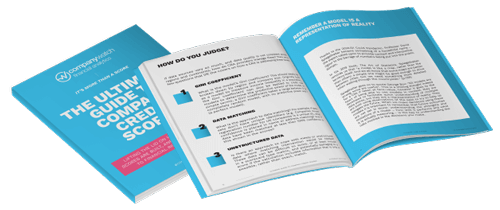Business Fraud Prevention: Identifying Blind Spots

Oftentimes, the key to business fraud prevention is identifying and addressing blind spots in processes that may previously have gone undetected. Unfortunately, this process is not always as straightforward as it may initially seem. Not using specialised fraud detection tools, poor financial management, and a negative organisational culture can all open a business up to fraud.
Vigilance™ by Company Watch empowers businesses to detect fraud by analysing company filings, identifying anomalies, and providing real-time monitoring. This proactive approach enables businesses to assess the risk of doing business with a particular company, protect their reputation, and avoid costly losses due to fraud.
In this blogpost, we cover the key blind spots that could result in potential business fraud. We recommend using this list to double-check your internal capabilities and appointing recommended procedures to correct any oversights. We talk about:
Understanding business fraud
What is business fraud?
Business fraud is one of the most common risks that companies expose themselves to when partnering with vendors or corporations. In essence, business fraud is any kind of deceptive practice that is done to obtain a financial or other advantage during business dealings.
In the initial stages of finalising partnerships for mergers and acquisitions, or supplier onboarding, it is especially important to be vigilant of financial business fraud. This can range from simple misrepresentation of finances and organisational structure to complex, targeted schemes to defraud particular companies.
Identifying business fraud: what are the blind spots?
1. Inadequate due diligence procedures
Due diligence is like buying a used car. Before you get the keys, you want to take it for a test drive, check the mileage, and inspect it for any hidden damage. By performing a thorough inspection, you can avoid costly repairs and ensure a smooth ride.
Inadequate due diligence is a major risk when entering new partnerships. It can lead to financial losses, reputational damage, and legal issues. To mitigate these risks, businesses must opt for enhanced due diligence, which addresses key areas for observation that might get overlooked during standard checks. It can also pinpoint relevant signs of business fraud that may be defining fraud factors.
Company Watch offers enhanced due diligence capabilities by providing real-time insights into companies' financial health, legal risks, and reputational issues. By leveraging advanced data analytics and AI-powered monitoring, businesses can identify red flags, assess financial strength, monitor regulatory compliance, and detect potential business fraud.
To find out how enhanced due diligence can be leveraged during mergers and acquisitions, read our complete M&A guide.
2. Weak contracts
According to a study by the Association of Certified Fraud Examiners (ACFE), weak internal controls, including poor contract management, were cited as a contributing factor in over 40% of fraud cases.
When contracts lack clarity, specificity, and robust enforcement mechanisms, it creates opportunities for dishonest partners to exploit loopholes and manipulate terms to their advantage.
But what do we mean by “weak contracts”? Below are 3 key contract elements to be mindful of when creating contractual documents for potential partners:
- Ill-defined or ambiguous terms, especially when it comes to more technical definitions
- Lack of clear performance or delivery metrics (especially true for contracts with suppliers and vendors)
- Weak dispute resolution clauses
3. Lack of visibility into partner operations
The Enron scandal is a prime example of how limited visibility into a partner's operations can lead to catastrophic consequences. Enron, an energy giant, created a complex network of special purpose entities (SPEs) to hide billions of dollars in debt from its investors and creditors.
Enron's partners and investors had limited visibility into the company's true financial condition, which allowed executives to engage in fraudulent accounting practices and inflate earnings.
The task of increasing partner visibility lies, once again, with enhanced due diligence checks. Along with providing comprehensive reports on a company’s financial situation, these checks allow you to:
- Establish clear reporting requirements
- Conduct regular and informed audits and reviews
- Negotiate for access to key information (EDD becomes critical here because it shows you exactly what information or documents to ask for prior to contract-signing)
- Employ advanced analytics and data visualisation tools to monitor potential red flags
- Build strong and lasting relationships, born out of complete confidence that the risk of business fraud has been minimised
How to prevent business fraud
Company Watch offers a suite of tools to help businesses combat fraud and make informed decisions.
Leveraging Vigilance™
Vigilance™ is a powerful tool within the Company Watch platform that provides real-time insights into company information, director details, and financial filings. By analysing vast amounts of data, Vigilance™ helps you uncover hidden risks before you are able to manually pick up on them, giving you a proactive edge against business fraud.
Powerful EDD reports
Company Watch can also create comprehensive Enhanced Due Diligence (EDD) reports. These reports provide detailed information on a company's financial health, legal history, and reputational risks. By leveraging these reports, you can gain a deeper understanding of your potential partners and make informed decisions.
Key takeaways
- Business fraud is any kind of deceptive practice that is done to obtain a financial or other advantage during business dealings.
- The 3 key blind spots that open businesses up to potential business fraud are: inadequate due diligence procedures, weak contracts, and a lack of visibility into partner operations
- Vigilance™ by Company Watch gives you a proactive edge against business fraud by providing real-time insights into company information, director details, and financial filings.

